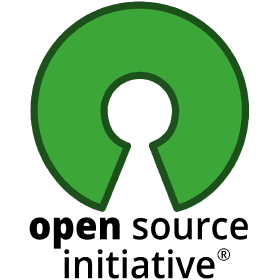 Open Source Initiative (OSI), the non-profit corporation that educates about and advocates for the importance of non-proprietary software, is hosting its 2nd Deep Dive: AI event, this one focused on Defining Open Source AI. The goal is to work toward establishing a clear and defendable definition of “Open Source AI.” OSI is bringing together global experts to establish a shared set of principles that can recreate a permissionless, pragmatic and simplified collaboration for AI practitioners, similar to what the Open Source Definition has done.
Open Source Initiative (OSI), the non-profit corporation that educates about and advocates for the importance of non-proprietary software, is hosting its 2nd Deep Dive: AI event, this one focused on Defining Open Source AI. The goal is to work toward establishing a clear and defendable definition of “Open Source AI.” OSI is bringing together global experts to establish a shared set of principles that can recreate a permissionless, pragmatic and simplified collaboration for AI practitioners, similar to what the Open Source Definition has done.
GitLab
See the following -
3 Steps For Product Marketing Your Open Source Project
 Product marketing for COSS is materially different from product marketing for proprietary software and from general marketing practices like ads, lead generation, sponsorships, booths at conferences and trade shows, etc. Because the source code is open for all to see and the project's evolutionary history is completely transparent, you need to articulate—from a technical level to a technical audience—how and why your project works. Using the word "marketing" in this context is, in fact, misleading. It's really about product education. Your role is more like a coach, mentor, or teaching assistant in a computer science class or a code bootcamp than a "marketing person."
Product marketing for COSS is materially different from product marketing for proprietary software and from general marketing practices like ads, lead generation, sponsorships, booths at conferences and trade shows, etc. Because the source code is open for all to see and the project's evolutionary history is completely transparent, you need to articulate—from a technical level to a technical audience—how and why your project works. Using the word "marketing" in this context is, in fact, misleading. It's really about product education. Your role is more like a coach, mentor, or teaching assistant in a computer science class or a code bootcamp than a "marketing person."
- Login to post comments
7 Mistakes Your Open Source Project is Probably Making
 It can be tough to start a new open source project. You have an awesome idea in your head, but it takes work to turn it into a productive, healthy, engaging community. Sadly (as seems to be the case in practically anything), the same mistakes are made over and over again by new projects. Here are some of the most common mistakes open source projects make and my recommendations for avoiding them... Of the thousands of open source projects that kick off, too many get stuck at the outset because of a bunch of discussions on a Slack channel, mailing list, issue, or elsewhere. The discussions bounce around the house, and the scope often grows more and more lavish to incorporate the many, sundry ideas and considerations...
It can be tough to start a new open source project. You have an awesome idea in your head, but it takes work to turn it into a productive, healthy, engaging community. Sadly (as seems to be the case in practically anything), the same mistakes are made over and over again by new projects. Here are some of the most common mistakes open source projects make and my recommendations for avoiding them... Of the thousands of open source projects that kick off, too many get stuck at the outset because of a bunch of discussions on a Slack channel, mailing list, issue, or elsewhere. The discussions bounce around the house, and the scope often grows more and more lavish to incorporate the many, sundry ideas and considerations...
- Login to post comments
A Guide to Bootstrapping Your Open Source Project with GitHub
 There's much more to managing a project with git beyond just committing code and working with branches. GitHub-Driven Development is a process that will help you organize and manage the progression of a project on GitHub, although much of this could be applied to other systems, such as GitLab, as well. This concept isn't only for developers; it can be used for project managers or anyone involved in the development of a project—it could even be applied to non-code projects...
There's much more to managing a project with git beyond just committing code and working with branches. GitHub-Driven Development is a process that will help you organize and manage the progression of a project on GitHub, although much of this could be applied to other systems, such as GitLab, as well. This concept isn't only for developers; it can be used for project managers or anyone involved in the development of a project—it could even be applied to non-code projects...
- Login to post comments
Changing the world with open source: GNOME president shares her story
 Growing up in Silicon Valley, Nuritzi Sanchez saw the powerful impact software can make on the world. Yet, unlike many others who were also steeped in the tech industry, her journey has taken her into the world of open source, where she is contributing to that impact. After graduating from Stanford University with a degree in International Relations, she became a founding team member of open source computing company Endless OS, served three terms as president and chair of GNOME's board of directors, and in February 2020 was hired as the senior open source program manager (OSPM) at GitLab. I am impressed by this talented woman, and I reached out to her to learn more about her and her work. I believe you will also be fascinated with her journey after reading our interview, which has been lightly edited for clarity.
Growing up in Silicon Valley, Nuritzi Sanchez saw the powerful impact software can make on the world. Yet, unlike many others who were also steeped in the tech industry, her journey has taken her into the world of open source, where she is contributing to that impact. After graduating from Stanford University with a degree in International Relations, she became a founding team member of open source computing company Endless OS, served three terms as president and chair of GNOME's board of directors, and in February 2020 was hired as the senior open source program manager (OSPM) at GitLab. I am impressed by this talented woman, and I reached out to her to learn more about her and her work. I believe you will also be fascinated with her journey after reading our interview, which has been lightly edited for clarity.
- Login to post comments
Getting started as a GitLab contributor
 GitLab's open culture is one of its strongest assets and the main reason I use GitLab in DevOps transformations. The community edition's code is open source and the paid version makes its source code available for contributions. These are valuable factors rooted in the company culture its CEO has diligently maintained over the years. It doesn't hurt that its tools are great, too. I believe GitLab's sales and marketing team is the best of any company out there. They have included me as a user, customer, and friend over the last few years, and they are genuine and caring people. This was underscored last year when I wanted to contribute a feature, and GitLab's team went to extraordinary lengths to help me succeed. Here's the story of making my first contribution to GitLab.
GitLab's open culture is one of its strongest assets and the main reason I use GitLab in DevOps transformations. The community edition's code is open source and the paid version makes its source code available for contributions. These are valuable factors rooted in the company culture its CEO has diligently maintained over the years. It doesn't hurt that its tools are great, too. I believe GitLab's sales and marketing team is the best of any company out there. They have included me as a user, customer, and friend over the last few years, and they are genuine and caring people. This was underscored last year when I wanted to contribute a feature, and GitLab's team went to extraordinary lengths to help me succeed. Here's the story of making my first contribution to GitLab.
- Login to post comments
Help Us Integrate GitLab and the Open Science Framework
 For years, the benefits of open source code development have been self-evident to the software development community: Transparency leads to collaboration, and collaboration leads to better and more secure code. The scientific community is just starting to understand these benefits. The growing open science movement is using these same lessons to make the scientific process more transparent, so that research findings will be more reproducible. In order to realize the benefits of open science, we must use a wide set of research tools to enable transparency, which will lead to increased discoverability, reuse, and collaboration...
For years, the benefits of open source code development have been self-evident to the software development community: Transparency leads to collaboration, and collaboration leads to better and more secure code. The scientific community is just starting to understand these benefits. The growing open science movement is using these same lessons to make the scientific process more transparent, so that research findings will be more reproducible. In order to realize the benefits of open science, we must use a wide set of research tools to enable transparency, which will lead to increased discoverability, reuse, and collaboration...
- Login to post comments
How to Grow Healthy Open Source Project Infrastructures
 In 2013 I joined the OpenStack Infrastructure team. In the four years I spent with the team, I learned a considerable amount about the value of hosting an infrastructure for an open source project in the open itself. In 2014 I gave a talk at All Things Open and was interviewed by Jason Baker about how we'd done our systems administration in the open. My involvement on this team led me to advocate for systems administrators to use revision control and learn about tools for working with a distributed team. At the OpenStack Summit in Austin in 2016, our team did a talk on navigating the open source OpenStack Infrastructure...
In 2013 I joined the OpenStack Infrastructure team. In the four years I spent with the team, I learned a considerable amount about the value of hosting an infrastructure for an open source project in the open itself. In 2014 I gave a talk at All Things Open and was interviewed by Jason Baker about how we'd done our systems administration in the open. My involvement on this team led me to advocate for systems administrators to use revision control and learn about tools for working with a distributed team. At the OpenStack Summit in Austin in 2016, our team did a talk on navigating the open source OpenStack Infrastructure...
- Login to post comments
How to Open Source Your Academic Work in 7 Steps
 Open source technology and academia are the perfect match. Find out how to meet tenure requirements while benefiting the whole community. Academic work fits nicely into the open source ethos: The higher the value of what you give away, the greater your academic prestige and earnings. Professors accomplish this by sharing their best ideas for free in journal articles in peer-reviewed literature. This is our currency, without a strong publishing record not only would our ability to progress in our careers degrade, but even our jobs could be lost (and the ability to get any other job). The following seven steps provide the best practices for making an academic's work open source...
Open source technology and academia are the perfect match. Find out how to meet tenure requirements while benefiting the whole community. Academic work fits nicely into the open source ethos: The higher the value of what you give away, the greater your academic prestige and earnings. Professors accomplish this by sharing their best ideas for free in journal articles in peer-reviewed literature. This is our currency, without a strong publishing record not only would our ability to progress in our careers degrade, but even our jobs could be lost (and the ability to get any other job). The following seven steps provide the best practices for making an academic's work open source...
- Login to post comments
Lessons Learned for Building an Open Company with Transparent Collaboration
 In the first part of this two-part series, Building a business on a solid open source model, I described how an open source business needs to provide a solid ground for all stakeholders, users, contributors, employees, customers, and of course investors. Foundations, licenses, and trademarks can be helpful in building an open ecosystem. Open source communities need supporting organizations to work transparently, otherwise there are barriers to contribution. Code might be public, but code dumps (like Google tends to do with Android) don't always facilitate collaboration. To encourage collaboration, you must go one step further and be proactive...
In the first part of this two-part series, Building a business on a solid open source model, I described how an open source business needs to provide a solid ground for all stakeholders, users, contributors, employees, customers, and of course investors. Foundations, licenses, and trademarks can be helpful in building an open ecosystem. Open source communities need supporting organizations to work transparently, otherwise there are barriers to contribution. Code might be public, but code dumps (like Google tends to do with Android) don't always facilitate collaboration. To encourage collaboration, you must go one step further and be proactive...
- Login to post comments
Open Source Initiative Hosts 2nd Deep Dive AI Event, Aims to Define ‘Open Source’ for AI
- Login to post comments
Open Source Software Has to Sell User Experience
 Mattermost does open source the right way. Open source software that is to succeed in this new world is going to have to be better than anything else. You can't sell just openness anymore; it is added value, not a unique selling point. Open source software now has to sell user experience. In a way it is a simpler metric, and probably one that is going to change open source forever—for the better. An exemplar of this new way is Mattermost, the open source messaging platform. Sure, they weren't first to the game, because Slack blazed the trail...
Mattermost does open source the right way. Open source software that is to succeed in this new world is going to have to be better than anything else. You can't sell just openness anymore; it is added value, not a unique selling point. Open source software now has to sell user experience. In a way it is a simpler metric, and probably one that is going to change open source forever—for the better. An exemplar of this new way is Mattermost, the open source messaging platform. Sure, they weren't first to the game, because Slack blazed the trail...
- Login to post comments
Preventing the Next Heartbleed and Making FOSS More Secure
 David Wheeler is a long-time leader in advising and working with the U.S. government on issues related to open source software. His personal webpage is a frequently cited source on open standards, open source software, and computer security. David is leading a new project, the CII Best Practices Badging project, which is part of the Linux Foundation's Core Infrastructure Initiative (CII) for strengthening the security of open source software. In this interview he talks about what it means for both government and other users...
David Wheeler is a long-time leader in advising and working with the U.S. government on issues related to open source software. His personal webpage is a frequently cited source on open standards, open source software, and computer security. David is leading a new project, the CII Best Practices Badging project, which is part of the Linux Foundation's Core Infrastructure Initiative (CII) for strengthening the security of open source software. In this interview he talks about what it means for both government and other users...
- Login to post comments
Top 8 open source project management tools for agile teams
 Opensource.com has surveyed the landscape of popular open source project management tools. We've done this before—but this time we've added a twist. This time, we're looking specifically at tools that support agile methodology, including related practices such as Scrum, Lean, and Kanban. The growth of interest in and use of agile is why we've decided to focus on these types of tools this year. A majority of organizations say they are using agile approaches at least sometimes. In addition, agile projects are 28% more successful than projects managed with traditional approaches. For this roundup, we looked at the project management tools we covered in 2014, 2015, and 2016 and plucked the ones that support agile, then did research to uncover any additions or changes. Whether your organization is already using agile or is one of the many planning to adopt agile approaches, one of these seven open source project management tools, in no particular order, may be exactly what you're looking for.
Opensource.com has surveyed the landscape of popular open source project management tools. We've done this before—but this time we've added a twist. This time, we're looking specifically at tools that support agile methodology, including related practices such as Scrum, Lean, and Kanban. The growth of interest in and use of agile is why we've decided to focus on these types of tools this year. A majority of organizations say they are using agile approaches at least sometimes. In addition, agile projects are 28% more successful than projects managed with traditional approaches. For this roundup, we looked at the project management tools we covered in 2014, 2015, and 2016 and plucked the ones that support agile, then did research to uncover any additions or changes. Whether your organization is already using agile or is one of the many planning to adopt agile approaches, one of these seven open source project management tools, in no particular order, may be exactly what you're looking for.
- Login to post comments
2nd Deep Dive Event: Defining Open Source Artificial Intelligence
Open Source Initiative (OSI), the non-profit corporation that educates about and advocates for the importance of non-proprietary software, is hosting its 2nd Deep Dive: AI event, this one focused on Defining Open Source AI. The goal is to work toward establishing a clear and defendable definition of “Open Source AI.” OSI is bringing together global experts to establish a shared set of principles that can recreate a permissionless, pragmatic and simplified collaboration for AI practitioners, similar to what the Open Source Definition has done. OSI is the steward of the Open Source Definition, which serves as the foundation of the modern software ecosystem, outlining the distribution terms of Open Source software. OSI also maintains a list of OSI Approved Licenses that have become a nexus of trust around which developers, users, corporations and governments can organize Open Source cooperation.
 “It’s time to define what ‘open’ means in AI before it is defined by accident,” said Stefano Maffulli, executive director of OSI. “This milestone project is essential right now. Policymakers, re-users and modifiers are confused, and developers aren’t clear on data sharing and transparency. A permission structure is needed to help fight open washing.”
“It’s time to define what ‘open’ means in AI before it is defined by accident,” said Stefano Maffulli, executive director of OSI. “This milestone project is essential right now. Policymakers, re-users and modifiers are confused, and developers aren’t clear on data sharing and transparency. A permission structure is needed to help fight open washing.”
- Login to post comments